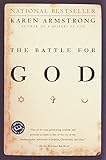承前*1
Eric Priest*2 “Stephen Hawking can't use physics to answer why we're here” http://www.guardian.co.uk/commentisfree/belief/2010/sep/03/physics-science-theology-universe
2010年の記事。スティーヴン・ホーキングがThe Grand Designで宇宙の始まり(ビッグ・バン)を説明するのに創造主としての神を呼び出す必要はなく「物理学」のみで説明し尽くすことができると主張したこと*3に対して、”It is certainly possible that God sets up and maintains or underpins the laws of physics and allows them to work, so that being able to explain the big bang in terms of physics is not inconsistent with there being a role for God.”
還元主義への批判*4。またhowとwhyの差異;
“God of the Gaps”論*5への批判。神は人知(科学)の空白を填めるパテではない。
Mathematics as applied to physics may be the queen of sciences according to Carl Friedrich Gauss, but it does not answer every scientific question. Chemistry, biology, psychology and the social sciences have their own ways of analysing the nature of reality which are complementary to those of physics and mathematics: indeed, they are not reducible to physics but their insights emerge at their own level of complexity.Furthermore, many of the questions that are most crucial to us as human beings are not addressed adequately at all by science, such as the nature of beauty and love and how to live one's life – often philosophy or history or theology are better suited to help answer them.
The complementary nature of different questions and in particular of the difference between how and why are important. If M-theory does indeed turn out to enable a unified theory, Hawking may be able in future to say how the universe started, but as a physicist he cannot answer the question "why?"
なおhowとwhyの差異に関しては、アレントの『精神の生活 第1巻思考』第8節における「真理(truth)」と「意味(meaning)」の差異を巡る議論が再度参照されるべきだろう。また宗教と(科学を含む)俗事との関係では、Karen Armstrongの謂うmythosとlogosの区別*6(The Battle for God*7)。
The so-called "God of the Gaps" is not part of modern religious faith. In this view, you invoked God to explain the inexplicable – at one time this would have been the weather or common diseases, and for Hawking apparently until recently the origin of the universe. Thus, when an alternative explanation arises, there is no longer any need for God.The God followed by many people of a religious faith is not a God of the Gaps at all – rather a God who helps answer other nonscientific questions about why the universe and its amazing life exists and how to lead a good life. Also, they welcome the advances in understanding that modern science brings, since they reveal more of the incredible beauty, diversity and wonder of the nature of the universe.

The Life of the Mind (Combined 2 Volumes in 1)
- 作者: Hannah Arendt,Mary McCarthy
- 出版社/メーカー: Mariner Books
- 発売日: 1981/04/01
- メディア: ペーパーバック
- クリック: 2回
- この商品を含むブログ (10件) を見る

The Battle for God: A History of Fundamentalism (Ballantine Reader's Circle)
- 作者: Karen Armstrong
- 出版社/メーカー: Ballantine Books
- 発売日: 2001/01/30
- メディア: ペーパーバック
- クリック: 43回
- この商品を含むブログ (28件) を見る
*1:http://d.hatena.ne.jp/sumita-m/20120605/1338911826
*2:http://www-solar.mcs.st-andrews.ac.uk/~eric/ See also http://en.wikipedia.org/wiki/Eric_Priest
*3:Adam Gabbatt “Stephen Hawking says universe not created by God” http://www.guardian.co.uk/science/2010/sep/02/stephen-hawking-big-bang-creator
*4:See also http://d.hatena.ne.jp/sumita-m/20100110/1263129732
*5:See http://www.theopedia.com/God_of_the_Gaps
*6:See also http://d.hatena.ne.jp/sumita-m/20080918/1221763583 http://d.hatena.ne.jp/sumita-m/20090531/1243712248